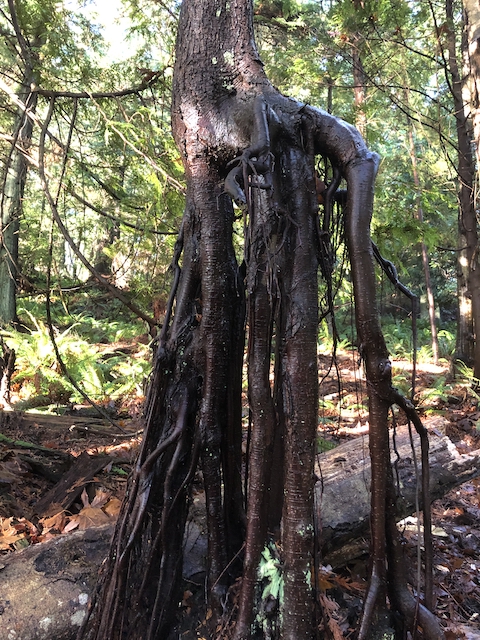
I’ll be away for a couple of weeks, so here is the last set of links for the year. Happy New Year. I am worried about democracy these days. Our electoral politics are ravaged by social media manipulation, an absence of policy discussion, and the influence of money. Governance affords very little opportunity for meaningful citizen participation. Harold Jarche is worried too, and in this pots he tackles the question of how to save democracy head on. Our institutions are failing us. They were designed for the age of print, not an electrically connected one. We need new structures and …

Things change in different ways. A couple of weeks ago, I took a deep dive into Glenda Eoyang’s Human Systems Dynamics, learning about her theory of complexity and getting my hands on the tools and methods that HSD uses to work in complex adaptive systems. (The tools are very good by the way, and highly recommended as ways to both get a good introductory grasp on complex problems, and work within those contexts to make decisions and lead). One of the useful ways of looking at things concerns the kinds of change that happen, and if you’ve been reading …

In the world of non-profits, social change, and philanthropy it seems essential that change agents provide funders with a theory of change. This is nominally a way for funders to see how an organization intends to make change in their work. Often on application forms, funders provide guidance, asking that a grantee provide an articulation of their theory of change and a logic model to show how, step by step, their program will help transform something, address an issue or solve a problem. In my experience, most of the time “theory of change” is really just another word for “strategic …

When working in complexity, and when trying to create new approaches to things, it’s important to pay attention to ideas that lie outside of the known ways of doing things. These are sometimes called “weak signals” and by their very nature they are hard to hear and see. At the Participatory Narrative Inquiry Institute, they have been thinking about this stuff. On May 31, Cynthia Kurtz posted a useful blog post on how we choose what to pay attention to: If you think of all the famous detectives you know of, fictional or real, they are always distinguished by their …

Sonja Blignault has been blogging some terrific stuff on Paul Cilliers’ work on complexity. Specifically she has been riffing on Cilliers’ seven characteristics of complex systems and the implications of complexity for organizations. Yesterday I was teaching an Art of Hosting here in Calgary, where we were looking at Cynefin and then followed with a discussion about how the nature of complex systems compels us to make important design choices when we are facilitating participatory processes to do work in organizations. This is a cursory list, but I thought it would be helpful to share here. Cilliers’ text is bold. …

